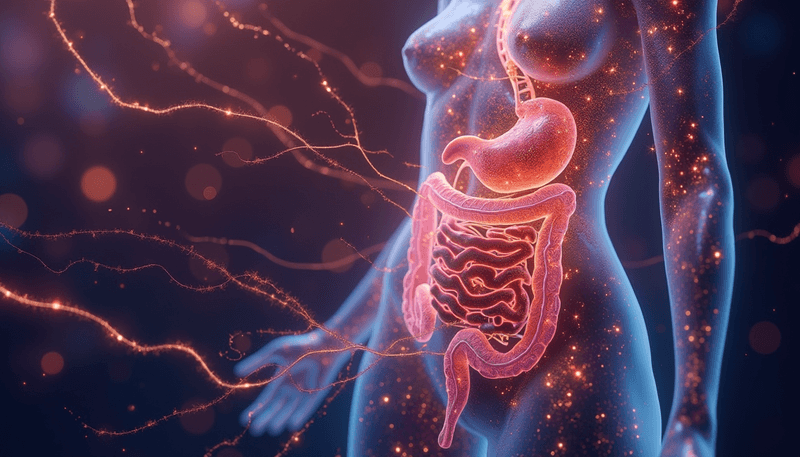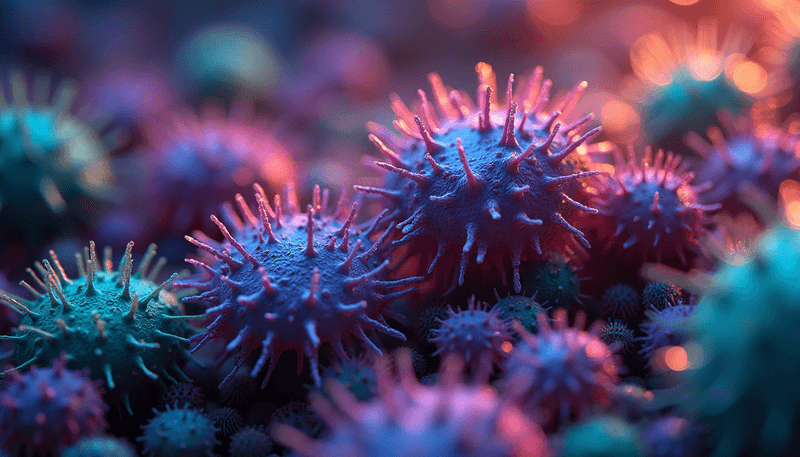Endo Belly: Your Questions Finally Answered

Have you ever woken up looking six months pregnant when you weren't the night before? For millions of women with endometriosis, this mysterious and frustrating symptom has a name: endo belly. A groundbreaking review from the Endometriosis Research Center Charité reveals the complex science behind this common yet rarely discussed symptom.
The Gut-Hormone Connection You Never Knew About
Think of your digestive system as an orchestra, with hormones as the conductors. When endometriosis enters the picture, it's like adding an unpredictable drummer who keeps changing the rhythm. Research shows that hormonal changes throughout your menstrual cycle directly impact how your intestines move and function. During the second half of your cycle, particularly before menstruation, your abdomen may become increasingly bloated due to heightened sensitivity in your intestinal wall.
Have you noticed your digestive symptoms getting worse at certain times of the month?
This isn't just ordinary bloating - women with endometriosis have a reduced pain threshold in their intestinal walls, similar to those with Irritable Bowel Syndrome (IBS). This explains why what might cause mild discomfort in others can lead to significant pain and bloating in those with endometriosis.
Your Microbiome: The Hidden Player
The billions of tiny organisms living in your gut play a starring role in endo belly. Recent studies reveal that women with endometriosis often have an imbalanced gut microbiome, with different proportions of beneficial and harmful bacteria compared to those without the condition.
Think of your gut microbiome as a bustling city. In a healthy city, different communities work together harmoniously. But in endometriosis, it's like certain neighborhoods become overcrowded while others are abandoned, creating chaos throughout the system.
When was the last time you considered how your diet might be affecting your gut bacteria?
This imbalance creates a cycle of inflammation and pain that can worsen endo belly symptoms. The good news? You have more control over this than you might think.
Diet: Your Most Powerful Tool
The food choices you make can significantly impact both your microbiome and endo belly symptoms. Research suggests that an anti-inflammatory diet can make a real difference.
Here's what studies recommend:
- Embrace plant-based foods rich in fiber
- Reduce sugar and gluten intake
- Include omega-3 fatty acids (found in fish oil)
- Focus on antioxidant-rich foods (especially citrus fruits)
- Consider vitamin D supplementation
In one study, 44% of participants who adopted these dietary changes reported significant improvement in their symptoms. Even more impressive, 18% were able to reduce their medication use by more than half.
What small dietary change could you start with today?
The Mind-Gut Battle Plan
Understanding the science behind endo belly is one thing, but putting that knowledge into action is another. Here's a practical approach based on the research:
-
Track Your Cycle: Keep a diary of your symptoms in relation to your menstrual cycle. This can help you predict and prepare for times when endo belly might be worse.
-
Support Your Microbiome:
- Eat plenty of fiber-rich foods
- Consider probiotic-rich foods
- Stay hydrated
- Limit processed foods
-
Reduce Inflammation:
- Include anti-inflammatory foods daily
- Consider omega-3 supplements (discuss with your healthcare provider)
- Pay attention to food triggers
Living with endo belly can feel overwhelming, but understanding the science behind it can empower you to take control. The connection between your hormones, gut microbiome, and inflammation isn't just fascinating science - it's the key to managing your symptoms effectively.
Remember, you're not alone in this journey. While research continues to advance our understanding of endometriosis and endo belly, you can start making positive changes today. Start small - perhaps with adding one anti-inflammatory food to your daily routine - and build from there.
What's the first step you'll take today to better manage your endo belly symptoms?

Dr. Anya Sharma, MD
Dr. Anya Sharma is a board-certified gynecologist with over a decade of experience specializing in women's health and patient education. She graduated from Johns Hopkins School of Medicine and completed her residency in Obstetrics and Gynecology at a top hospital in New York City. With a passion for empowering women, Anya transitioned to content creation to provide accessible, evidence-based information on health topics relevant to mid-aged women. Her empathetic and pragmatic approach combines medical expertise with relatable insights, making her a trusted voice in the field.







